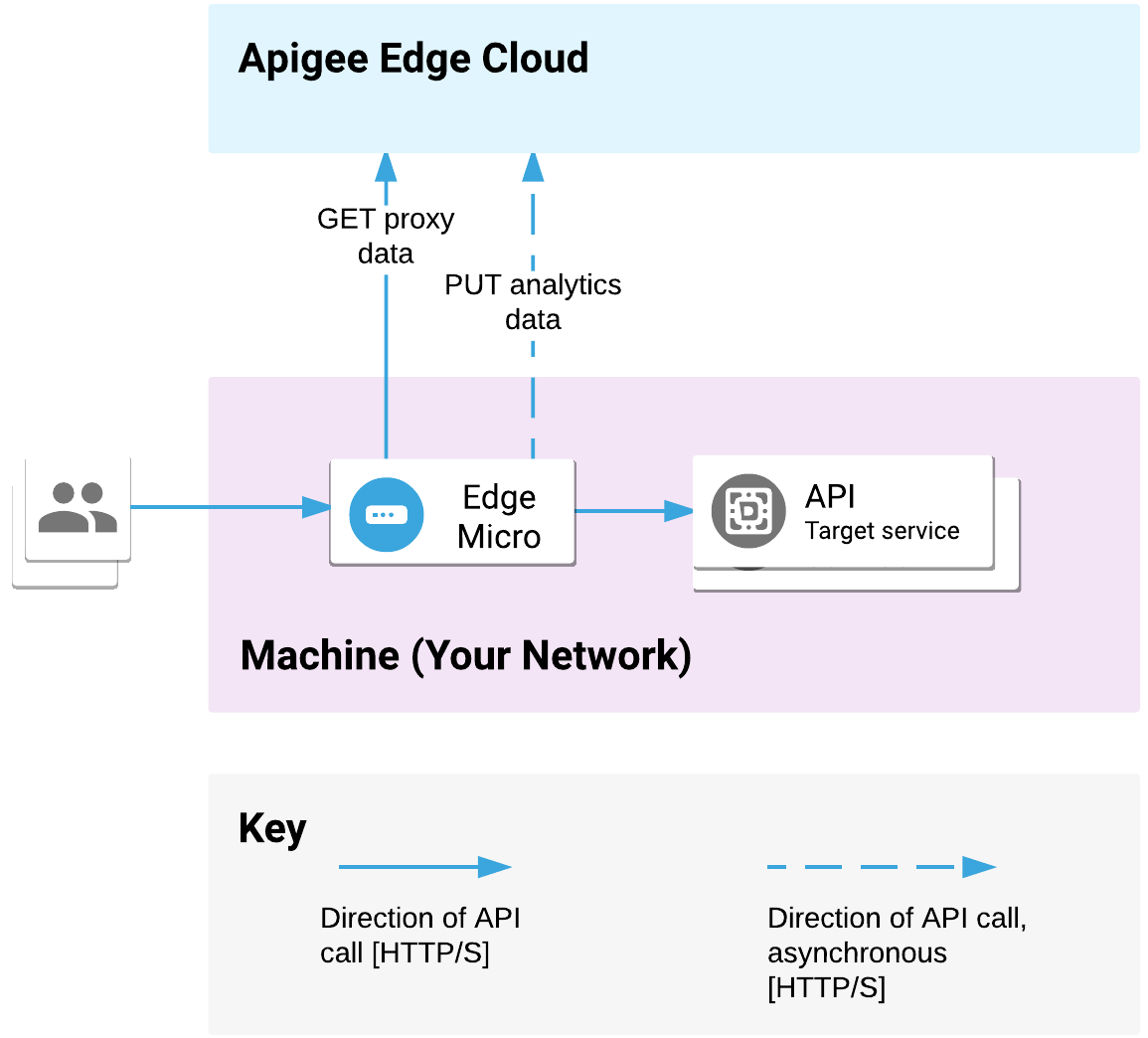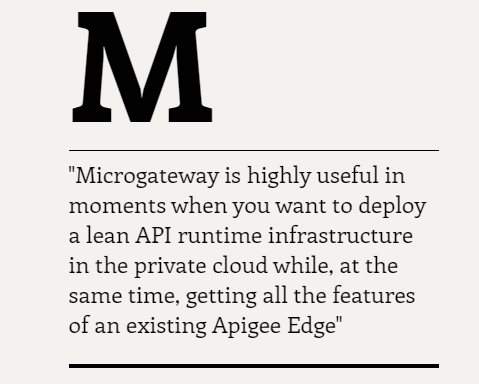
We’re excited to hear your project.
Let’s collaborate!

So you're evaluating and comparing all the available solutions for centralizing and standardizing your APIs. And you can't help wondering: "When is it recommended that I use Apigee Edge Microgateway?"
Why would you use it in the first place, over other platforms for managing internal APIs? Over... the Apigee Edge gateway, for instance?
What "irresistible" capabilities does it provide?
And when precisely should you use it? What are its typical use cases?
Let's get you some answers:
If I was to compress its definition in a short line, it would go something like this:
Apigee Edge Microgateway is a hybrid cloud solution for managing your APIs.
Whereas if I was to opt for a detailed one:
It's an HTTP-based message processor for APIs, built on Nodejs, that enables you to centralize and manage all your APIs in a hybrid cloud deployment setup.
From traffic management to enterprise-grade security, to analytics, spike arrest, and quota (and the list goes on), it provides you with most of the standard Apigee Edge capabilities.
Moreover, you get to install it either on the same machine or in the same data center.

Source: docs.apigee.com
"And how exactly does it work?" you'll then ask yourself.
It processes the messages — requests, and responses — going to and from your backend services. Meaning that it'll asynchronously push API execution data to Apigee Edge once consumed by the Edge Analytics.
"What about the Edge Microgateway deployment scenarios? What are my options?"
Well, there are quite a few, since you get to deploy it:
Why would you go with Apigee Edge Microgateway over another setup for centralizing and administering your APIs?
Here are some of the strongest API management capabilities that it provides you with:
When is it best to go with a hybrid deployment model for managing your APIs?

Source: LinkedIn
Here are some of the most common use cases of Apigee Edge Microgateway:
Apigee Edge vs Microgateway... why should you consider the later?
How are they different more exactly?
Especially since it gets even more confusing when considering that you even get Apigee Edge Microgateway plugins, which are so similar to Apigee Edge's policies...
What capabilities, that you can benefit from using Apigee Edge, does Microgateway lack, for instance?
Now, in terms of differences, here's a general "rule of thumb":
Apigee Edge Microgateway does not come to replace the Edge gateway.
It has its own specific "lighter" use cases, like various mediations, key verification, quota that you can do with your backend services in close proximity, all while tapping into its robust above-mentioned capabilities.
The END!
Are you using Apigee Edge Microgateway? If so, what's your specific use case?
And why have you decided to go with Microgateway instead of Edge Gateway?
Image by Lynn Neo from Pixabay

We’re excited to hear your project.
Let’s collaborate!